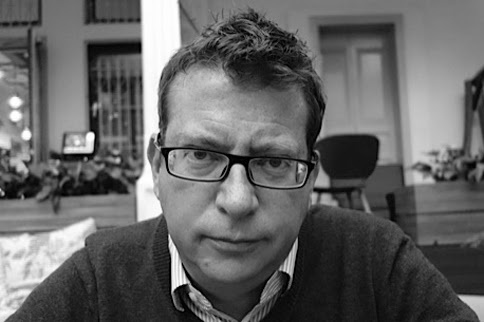Humanitarian Reporting Crucial But Must Be Done Right, Ben Parker Reflects As He Bows Out
As he leaves The New Humanitarian after about 25 years of service to take up a senior role at the United Nations, Parker reflects on his experiences as a former aid worker as well as reporting humanitarian issues across the world.

Reporting the aid industry as well as humanitarian crises is tough but also incredibly important, says Ben Parker, co-founder and former senior policy editor at The New Humanitarian.
Parker, a specialist in humanitarian affairs, media, and technology, co-founded IRIN News, which later became The New Humanitarian, in 1995. He has worked in different capacities for the United Nations and its agencies. He returned to IRIN in 2006 to take up the role of Editor-in-Chief, but has recently announced his exit from the non-profit publication.
“You might think that reporting on humanitarian issues is like any other kind of journalism. But after years of being both an aid worker and a reporter at The New Humanitarian … I think it has a special set of rewards and difficulties,” Parker wrote in a think piece published on Friday.
He explained that this is because the sector is difficult to understand and not satisfactorily transparent. Also, the stakeholders are reluctant to speak to the press for several reasons.
“They fear for their jobs, yes, but they also worry about contagion: If they blow the whistle on a bad project, they may bring down the agency or the projects that are doing good work,” he said.
The problem, however, is that this mindset makes it easy for impunity to grow.
“The aid industry is murky, and tight-lipped. And as well as having limited journalistic scrutiny, it generally lacks the checks and balances that customers, shareholders or voters provide to other sectors of society. Instead, its ‘stakeholders’ – a favorite bit of aidspeak – lack power or their incentives to do better are misaligned. A business that fails its customers will go bust. An incompetent government may be voted out or overthrown. But aid projects and aid agencies can be relentlessly mediocre but still survive,” Parker said.
“That makes good humanitarian journalism all the more important – because other restraints are largely not there. What should it entail?”
Answering this question, he suggested that good reporting of the sector should not only be critical but balanced. It “requires patience and persistence.”
He complained that few media organisations invest in humanitarian journalism as a niche; rather it is treated as a “side-bar to political or military journalism.”
“Done well, journalism about crises can do a lot. It can remove an excuse for inaction; politicians can’t say they didn’t know or weren’t warned. It can arm the public and decision-makers with facts, analysis and context they can use – in whatever way they choose. It can rekindle some fellow-feeling and solidarity between different people, alienated or languishing on opposite sides of the planet. And those whose job it is to save lives can be held to account,” he argued.
On the other hand, “Done badly, reporting on humanitarian crises can be exploitative and offensive, a fount of lazy and racist tropes; even schadenfreude – pleasure derived by someone from another person’s misfortune – dressed up as pity.”
Support Our Journalism
There are millions of ordinary people affected by conflict in Africa whose stories are missing in the mainstream media. HumAngle is determined to tell those challenging and under-reported stories, hoping that the people impacted by these conflicts will find the safety and security they deserve.
To ensure that we continue to provide public service coverage, we have a small favour to ask you. We want you to be part of our journalistic endeavour by contributing a token to us.
Your donation will further promote a robust, free, and independent media.
Donate HereStay Closer To The Stories That Matter




